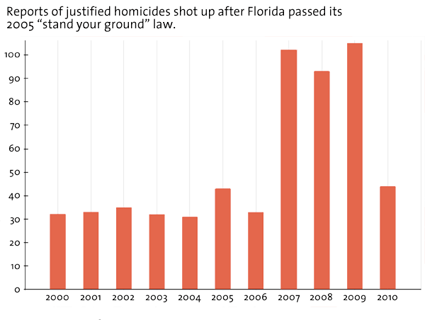
<a href="http://www.shutterstock.com/cat.mhtml?lang=en&search_source=search_form&search_tracking_id=m-IrABi71svoMYmM1FvEtA&version=llv1&anyorall=all&safesearch=1&searchterm=lethal+injection&search_group=&orient=&search_cat=&searchtermx=&photographer_name=&people_gender=&people_age=&people_ethnicity=&people_number=&commercial_ok=&color=&show_color_wheel=1#id=17707639&src=RCh_lH4YJL-xrgji0pMRdg-1-42">Scott Maxwell</a>Shutterstock
States across the country have spent the last few years reconsidering the wisdom of capital punishment. Over the past six years, five states have abolished the death penalty entirely, including Maryland just last month. But Florida, where the execution rate is second only to Texas, isn’t having that conversation. Instead, Gov. Rick Scott (R) is currently considering a bill passed by the legislature this week that would speed up executions in the state by limiting “frivolous” appeals by inmates and shortening the time they spend on Death Row. (Florida has about 400 people on Death Row, 10 of whom have been there more than 35 years.)
Called the “Timely Justice Act,” the bill would create new deadlines for certain filings and force the state to move faster towards an execution after a ruling by the state supreme court. Florida legislators behind the bill believe it will save money (executions currently cost state taxpayers about $24 million each) and bring closure to victims, but legal advocates say that it’s likely to do nothing but raise the possibility that Florida will execute an innocent person. They’re on pretty solid ground with that argument, given that 24 people on Florida’s Death Row have been exonerated since the death penalty was reinstated in the 1970s.
It’s not very hard to convict someone of a capital crime in Florida, which is the only state in the country that allows a jury to recommend a death sentence with only a simple majority vote of 7 to 5. Also, the state has one of the nation’s worst indigent defense systems, ensuring that anyone facing a capital charge is likely to get a bad lawyer in the deal. Because of other state budget crises, Florida has slashed the money available for indigent defense, and it caps the fees in a capital case at $15,000, an amount that barely covers a lawyer’s time in court through the trial. The fees are so bad that few lawyers will take capital cases. (Florida’s indigent defense system is generally a mess. After the state legislature in 2009 set very low flat fees for private lawyers who are appointed to handle criminal defense cases, lawyers fled the system in droves. Things got so dire that at one point judges attempted to force lawyers to take the cases through “involuntary” appointments.)
The lawyers who do take the capital cases are often largely incompetent. Florida made the news a few years ago after one of its mentally ill death row inmates, Albert Holland Jr., won a US Supreme Court case in which Justice Stephen Breyer found that Holland did a better job of representing himself than his court-appointed lawyers did. The New York Times explains what sorts of representation Holland had gotten in Florida:
Consider Kenneth Delegal, who was assigned to defend Mr. Holland at a 1996 retrial on charges that he killed a Pompano Beach police officer in 1990. Mr. Delegal was removed from the case after being sent to a mental health facility. Later, the two men would see each other at the Broward County jail, where Mr. Delegal was held on drug and domestic violence charges.
The next lawyer, James Lewis, was a friend of Mr. Delegal’s and had shared office space with him. When Mr. Delegal went to court after his removal from Mr. Holland’s case, seeking to be paid about $40,000 for his work on it, the new lawyer testified on behalf of the old one, saying the fees had been “reasonable and necessary.”
Mr. Delegal died of a drug overdose about a month after the fee hearing, and a local paper asked his former colleague Mr. Lewis about his troubles. “I heard some rumors,” Mr. Lewis said, “but I chose not to know.”
The new Florida bill attempts to address the issue of terrible lawyers and the appeals they generate by setting competence standards for lawyers taking capital cases, and it would bar anyone found guilty twice of giving “constitutionally deficient representation” from handling another capital case for five years. But the bill doesn’t provide any more money to pay for more competent counsel.
The bill’s opponents haven’t convinced Florida lawmakers of any of this. During a legislative debate last week, Rep. Matt Gaetz (R) said, “Only God can judge. But we sure can set up the meeting.” The bill awaits Scott’s signature.













